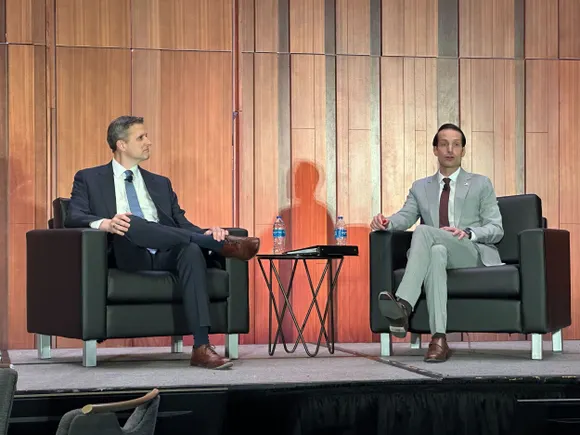by Joseph A. Brennan
ldutko/Shutterstock
Early in my career, I interviewed for what seemed like the perfect role at an organization I’d admired. I’d prepared thoroughly and felt confident about my qualifications.
I expected a collaborative conversation, but I walked into an ambush. The panel seemed more interested in exposing what I didn’t know than learning what I could contribute. One person questioned whether someone “so young” could handle senior-level responsibilities. Another interrupted to explain why my ideas wouldn’t work “here.” A third kept asking variations of the same question as if waiting for me to stumble.
The bad interview questions didn’t end there. One that really stunned me was: “What’s your religious background?” This was a secular organization where faith had zero relevance to the job. I was so rattled that I answered instead of challenging its relevance.
It felt like I was defending my right to be there rather than discussing how I could help them succeed.
I didn’t get an offer. But even if I had, I wouldn’t have accepted it. I’d seen what working there would look like — and I wanted no part of it.
At the time, I thought it meant I wasn’t ready. I blamed myself for not handling their hostility, for getting flustered, for not winning them over despite their obvious bias. Thirty years later, I realize it taught me something valuable: how an organization treats you during the interview is how they’ll treat you as an employee.
The Reality of Interview Power Dynamics
Some panels confuse hostility with rigor, letting insecurities drive them to diminish rather than evaluate candidates. Some people think harder interviews produce better results, or they’re protecting turf when the role involves fixing their problems.
Sometimes hostile treatment signals committee members sabotaging candidates to favor their preferred choice. The unspoken message is clear: you’re not welcome.
Read the Room (And Trust Your Gut)
Watch for red flags, including these:
Panel members who are showing off rather than listening. If someone asks a question to demonstrate their expertise, they’re not evaluating you — they’re performing.
Interrupting or using dismissive body language. Crossed arms, eye rolls, or talking over you signal disrespect, not engagement.
Questions designed to rattle rather than assess. “Why should we believe you can handle this when you’ve never worked in our specific sector?” versus “Tell us how your experience translates to our environment.”
Inappropriate or illegal questions. Asking about religion, marital status, ethnicity, family plans, or any protected characteristic reveals either ignorance about hiring law or deliberate provocation.
The impossibility test. When they describe impossible challenges or unrealistic budgets, they might be nudging you to withdraw.
Five Strategies That Work
1. Use the redirect technique. When faced with hostile questions, try: “That’s an important concern. Let me share how I’ve approached similar challenges.” This acknowledges their point while steering toward your strengths.
2. Stay curious, not defensive. Instead of justifying yourself, ask clarifying questions: “Help me understand what success looks like in this role” or “What’s been the biggest challenge for this position?”
3. Find your allies in real time. Look for the person asking thoughtful questions or nodding when you speak. Direct energy toward them. Their engagement can shift the dynamic.
4. Own your expertise. Respond confidently to challenging questions: “Here’s exactly how my background prepared me for this situation,” followed by a specific example.
5. Remember the 90/10 rule. In most rooms, 90% of people want to find the right person for the job. Don’t let the vocal 10% convince you that everyone thinks you’re wrong for the role.
When the Interview Goes Sideways
If those strategies don’t shift the conversation, try these approaches:
Don’t stoop to their level, but stop trying to win them over. If someone is determined to dislike you, let it go. Keep your head high and represent yourself as the professional you are.
Use it as practice. Every difficult interview strengthens you. Reframe it as a learning opportunity.
Turn the tables. Ask tough questions. “What’s the biggest challenge facing this department?” “How do you handle conflict on the team?” “What happened to the last person in this role?” Their answers will tell you everything.
Trust your instincts. If they’re aggressive or rude now, imagine them as colleagues.
The Gift of a Bad Interview
I wince every time I recall that miserable interview, but it taught me how not to interview people and made me determined never to treat a candidate as I was treated.
Learning to recognize healthy cultures helped me avoid toxic environments and find wonderful workplaces.
What This Means for Your Search
Remember, a hostile interview is not your fault. Healthy workplaces want candidates to succeed in the interview because they want to find great people. Toxic workplaces don’t care about relationships and prioritize power plays over employee satisfaction.
Remember: You’re interviewing them as much as they’re interviewing you. The goal isn’t just to get any job — it’s to find the right job with people who will value you and what you bring.
Explore culture with questions like: “How do you handle mistakes here?” “What does support look like for someone new?” “Can you tell me about a recent challenge the team overcame together?” The answers — and how they’re delivered — tell you if the culture is healthy.
Don’t get discouraged if you run into a room full of hostile people. Keep looking for an organization where integrity, decency, and respect matter. You’re worth it.





























